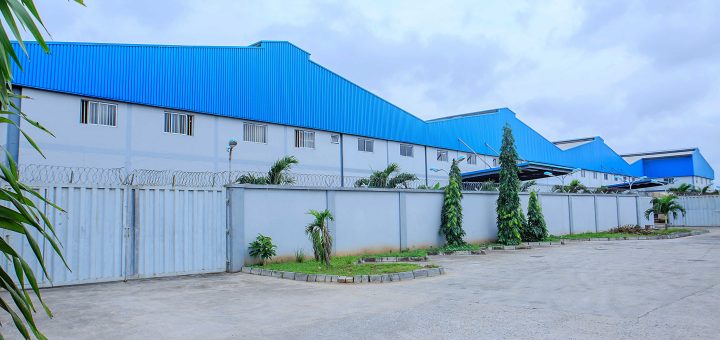Understanding The Importance Of Warehousing In Logistics - Business - Nairaland
Nairaland Forum / Nairaland / General / Business / Understanding The Importance Of Warehousing In Logistics (297 Views)
The Role Of Warehousing In Supply Chain Management / Understanding The Cash-less Policy / The Importance Of Trade Test Certificate And How To Get It (2) (3) (4)
(1) (Reply)
| Understanding The Importance Of Warehousing In Logistics by DonBrad: 1:08pm On Aug 28, 2020 |
 From raw material tracking, finished goods, secured storage, inventory management to distribution and customer service, the place of warehousing in the supply chain of product and service-based firms is unquestionably important. While the focus of our discussion is on understanding the importance of warehousing, we are also mindful not to assume that our entire audience understands what a warehouse is. This will be defined in the simplest terms; the various types of warehouses and their functions will also be discussed. What is A Warehouse? A warehouse is a commercialized building generally used for the proper storage of goods and handling of general cargo. A standard warehouse is often configured with technological tools for the facilitation of records and inventory of goods, as well as making them available on-demand with little or no room for surprises. Warehouses vary in sizes, capacity, and operational permits. For instance, some warehouses are built and designed to handle heavy-duty equipment and general cargoes, while others are not. Some others are specially configured for the storage of food, drugs, sensitive materials, and chemicals, and so on while many others are meant for general cargo with no capacity to handle sensitive goods, drugs, or chemicals. Below are the various types of warehouses and their functional importance. Private Warehouse: This category of warehouses is usually owned, rented, or leased by manufacturers, traders, retailers, wholesalers, farmers, and almost likely sited close to their selling centers for both storage and distribution. Public Warehouse: This can be government or semi-government owned that is offered to private companies for rent. This type of warehouse is set-up to support Small and Medium Scale (SMEs) businesses, manufacturers, importers, or exporters who may not financially be positioned to own their own warehouse. Bonded Warehouse: This can be owned, managed, or controlled by the government or private agencies after duly obtaining a bond license. In other words, a custom bonded warehouse is a licensed building or other secured area in which dutiable goods may be stored, customs inspections/examinations are carried, correct duties paid, and cargo released. Special project, time-sensitive cargo, containers, and Groupage or Less Than Container Load shipments are transferred straight from the ports to the bonded warehouses with minimal delays. This is because the cost of going through manual port clearance processes, multiple examinations, and delays prompted by port congestion can be very high. This kind of warehouse is best suited for a country like Nigeria, for two major reasons: Efficiency: The fact that shipments can be consigned from origin to the bonded warehouse directly, without the risk of being trapped in port congestion is one of the key benefits of a bonded warehouse in Nigeria. This makes the clearance of special Oil & Gas, project-based, time-bound, and other high-value cargoes, faster, easier, and better with little or no exposure to additional costs. Easier Acess to Cargo: Given that Groupage containers carry Less Than Container Loads of multiple consignees (multiple individual cargo owners), a bonded warehouse gives these multiple consignees easier access to their goods outside the seaport, faster clearance and processes, and cargo pick-up. Co-operative Warehouse: This category of warehouses is usually owned by a cooperative society for the purpose of providing storage facilities at the most affordable cost to their members only. Unlike the conventional warehouse, this is a less profit-oriented warehouse. [b]Distribution Warehouse: [/b]This is also known as distribution centers due to its design for having large storage spaces. This also gives room for the quicker movement larger quantity goods over a short period of time. It can also serve as a large distribution hub where goods are bought by multiple suppliers to customers at a quicker rate. In most cases, effective inventory management and the distribution processes are technologically aided by warehousing software systems, like EPOS, an inventory tracking software system, 3PL Warehouse Manager, etc. Distribution centers are mostly sited closer to a transport facility with tailored capacity to handle goods meant for distribution within 24 hours – especially perishable and Fast Move Consumer (FMC) goods. In conclusion, bearing in mind that the warehousing as a subject matter cannot be exhaustively discussed in a single article, this is the first of our series on warehousing. However, whether your business is centered on manufacturing, distribution, or service delivery, the importance of warehousing in every supply chain system is key and its potential to reduce cycle times through expert inventory, distribution, and storage management is even more pivotal. Source: https://blog.fglobalshipping.com/understanding-the-importance-of-warehousing-in-logistics/ |
| Re: Understanding The Importance Of Warehousing In Logistics by Lubanko: 8:03pm On Aug 28, 2020 |
Warehouses are important but only if you're contractor and supplier of building materials. So finding a supplier is way more important for mere mortals. Here's my experienced guess https://glassaround.com/ 1 Like |
(1) (Reply)
Quick Cash Loans | Get Up To 1000$ Today - Eazycash / Spocket Vs Oberlo: Best Shopify Dropshipping App / Beautiful Baby Girl Dress
(Go Up)
| Sections: politics (1) business autos (1) jobs (1) career education (1) romance computers phones travel sports fashion health religion celebs tv-movies music-radio literature webmasters programming techmarket Links: (1) (2) (3) (4) (5) (6) (7) (8) (9) (10) Nairaland - Copyright © 2005 - 2024 Oluwaseun Osewa. All rights reserved. See How To Advertise. 14 |